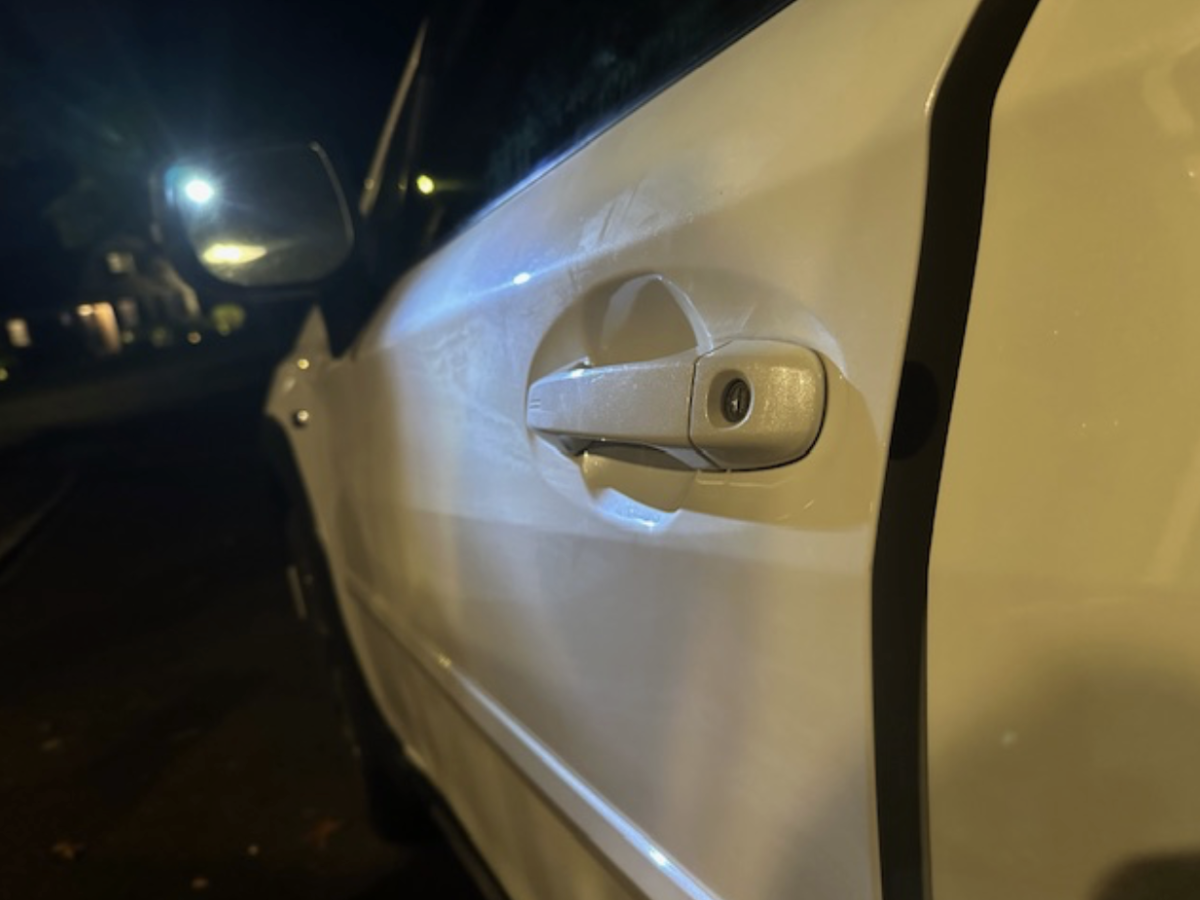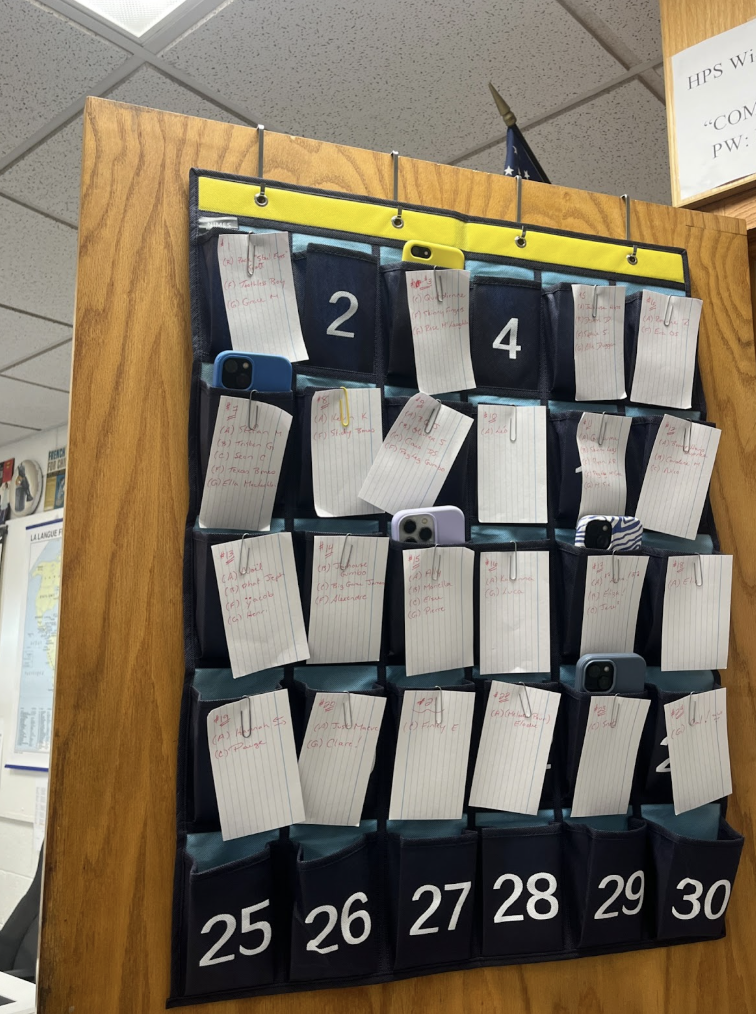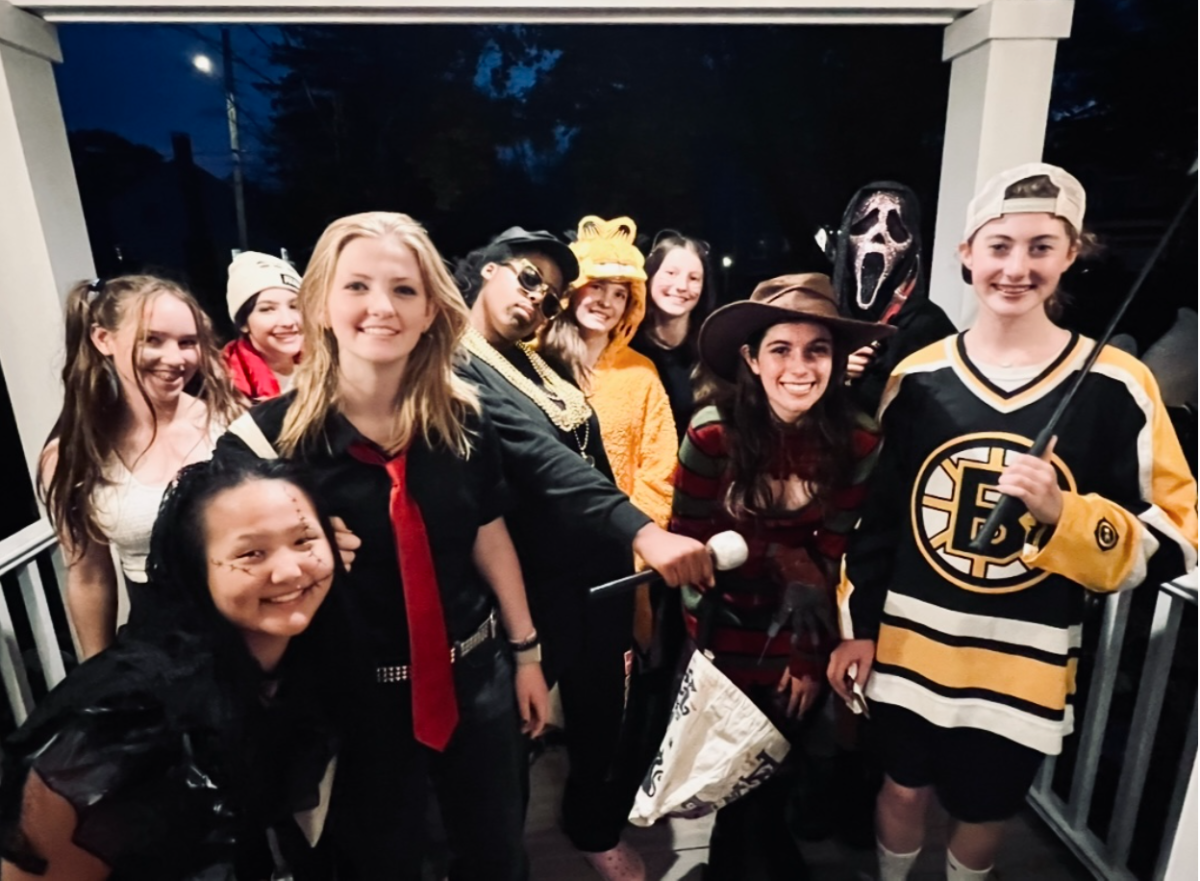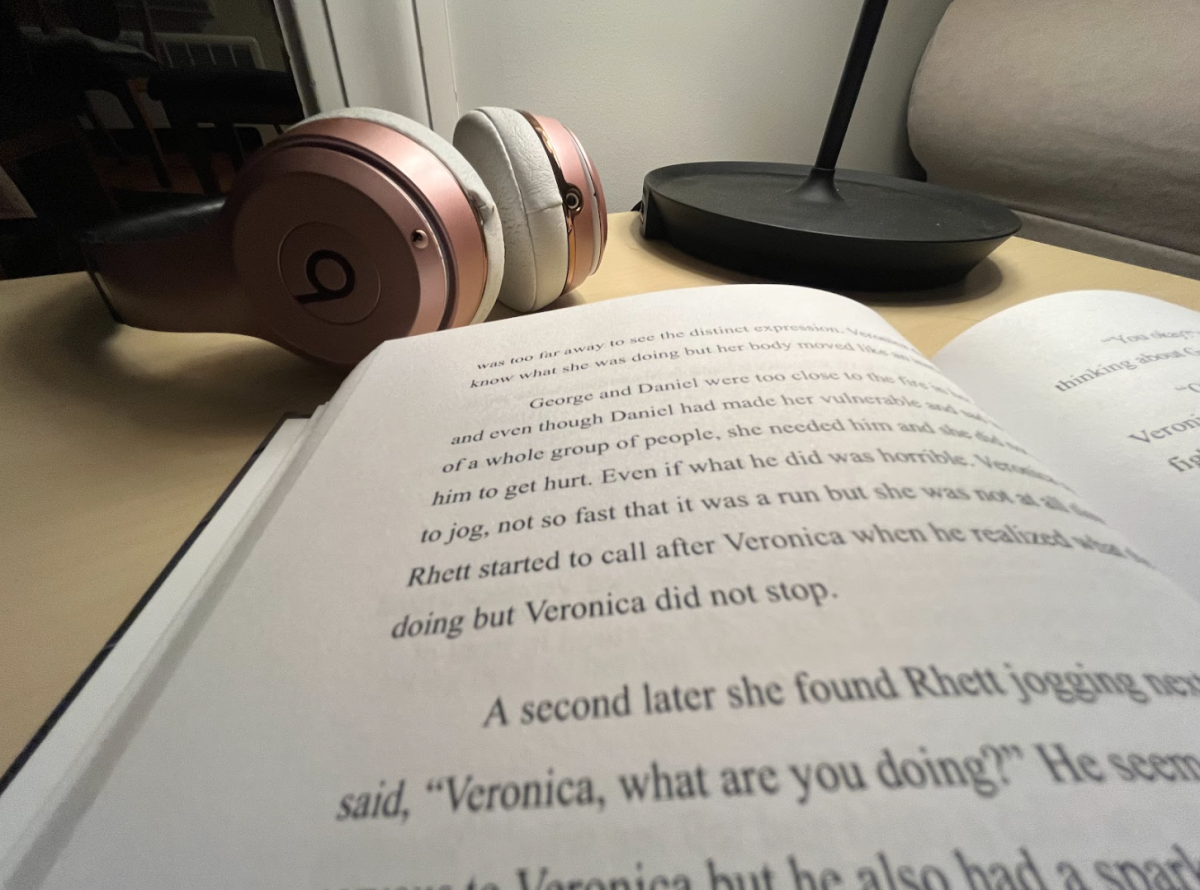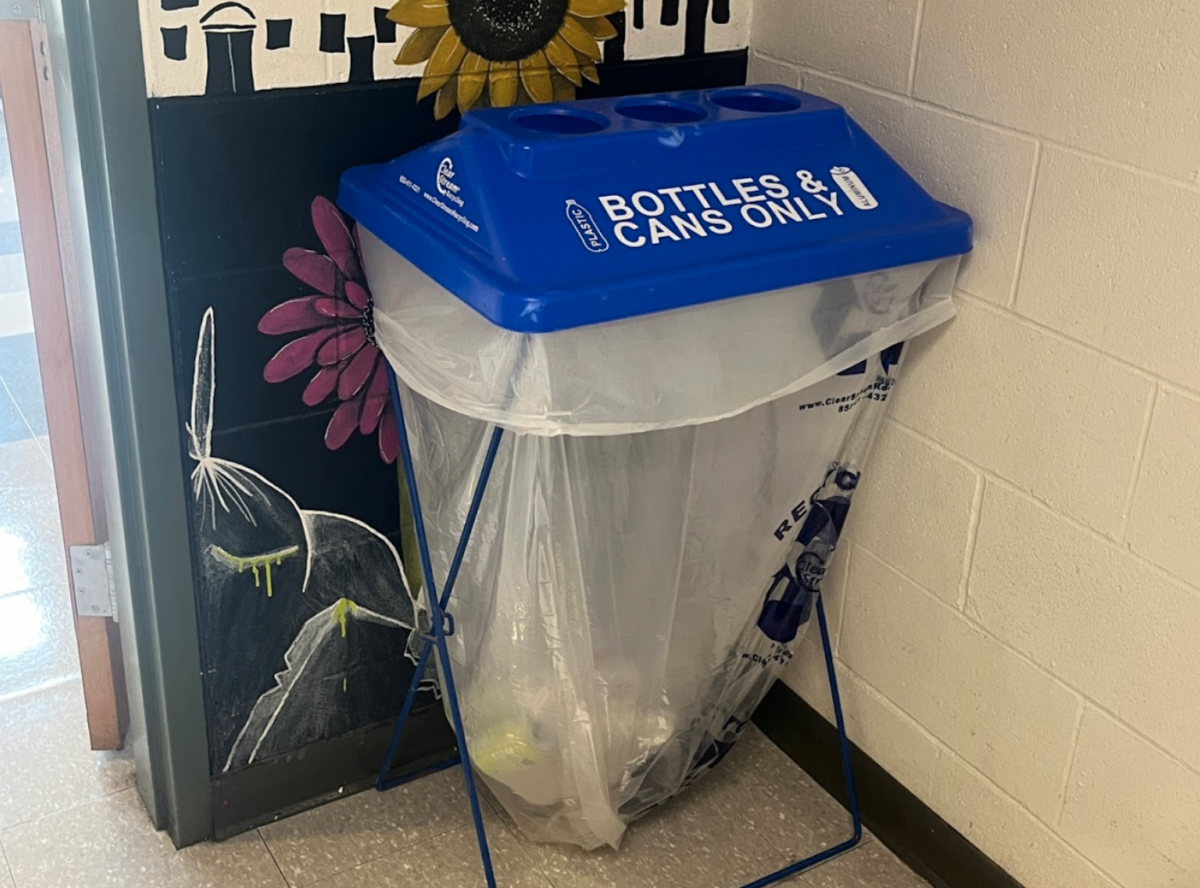Many older generations say that phones are ruining today’s society, but is this true? With the extinction of textbooks and paper, screens are used more frequently in day-to-day life. Hingham students are required to have their own personal laptops with them during the school day. When they get home, or have free time, many teens tend to rely on screens to bring them entertainment. Is this habit affecting the students’ school and lives?
The Problem:

(Casey Teahan)
I created a 4-question survey that elicited screen usage information in the Hingham High School community. When asked to record their daily screen time average, the results were shocking, but everyone was surprised. Out of the 119 HHS students and teachers that opted to participate in the online survey this month, over 50% of them documented that they spent 4-6 hours on their phone every day. If a student goes to school for 7 hours, has practice for an hour, gets the recommended 8 hours of sleep, and spends 6 hours on their phone, they will have 2 hours to do homework, talk to friends, eat, and do every other necessary part of their day. The main variables affected by this problem are sleep and quality of schoolwork. If it is late at night, the student will either stay up late or rush through work.
Another main factor affected by this problem is the students’ social life. As many Harbormen might notice, the cafeteria is littered with phones distracting students from having conversations with each other. A major offender to this lunch problem is the popular game called Block Blast. The survey shows that 31% of students spend over 30 minutes on block blast every day. Most of this is during lunch or in between classes when they should be socializing with peers. Sophomore Zoe Palmer states, “Block Blast is good because it helps with anxiety and critical thinking skills, but sometimes it feels a little bit addicting.” If a class ends a few minutes early, many students pull out their phones and start the “doom scrolling.” They do not realize that this reaction is becoming automatic so if their phone dies or they must go without it, it could seem like the end of the world.
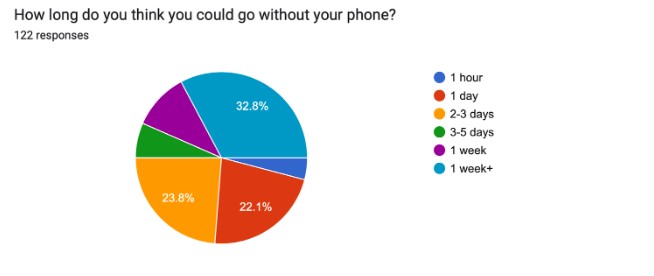
(Casey Teahan)
Lastly, phones act as a distraction for students during the school day. Playing games like Block Blast or scrolling on social media during a class might seem necessary, but it is only hurting them as a student. They could miss an instruction from the teacher or other valuable information that could affect their grade.
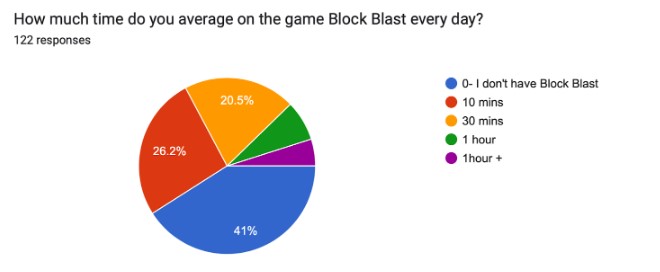
(Casey Teahan)
Phones can also create a big distraction during homework. Even though it is recommended that students keep their phones out of their study area, most do not. Whether they play music or a video while doing homework, or take breaks that turn into mindless scrolling, phones sidetrack students which affects the quality of their work. Sophomore Kylie McAloon shares,“While I do my homework, I try to turn my notifications off but sometimes I reward myself with breaks which turn into a longer time than anticipated.” The best solution is to keep phones far away from a study space, yet this is wishful thinking and a hard habit to break.
Phones can also distract teenagers in other parts of society. The National Highway Traffic Safety Administration, or NHTSA noted, “Distracted driving is dangerous, claiming 3,308 lives in 2022.” This is a sad reality that many families have to deal with. Even though driving while texting is illegal, the part of the brain that makes decisions is not fully developed until the age of 25. This unfortunately causes many teen deaths due to texting while driving. Lawmakers are continuously looking for ways to limit this behavior because it is a serious issue that affects the current generation.
Solutions:
The problem of screen time will never be fully resolved, yet people have produced solutions to help with the obstacle. For example, teachers have been required to use phone pockets during class. Junior Courtney Hay states, “I know I am addicted to my phone, but everything I need is in the palm of my hand. I feel frustrated when I have to put it in the phone pockets.” June Rogan says, “They are annoying, but I get why teachers use them.” It is one thing to realize change needs to be made, but it is another to act and change habits. In the end, the “phone sleeping bags” will hopefully help productivity in the classroom.
Next, a helpful trick is to set time limits on certain apps that people spend most time on. Over 85% of surveyed community members said that most of their screen time was spent on social media. Setting time limits on social media apps can better study habits and decrease screen time. Even if someone were to override and type in the screen time password, they still have the shocking realization that they had already reached a certain limit for the day. This will not solve the problem, but it will hopefully make more people realize their bad routines.
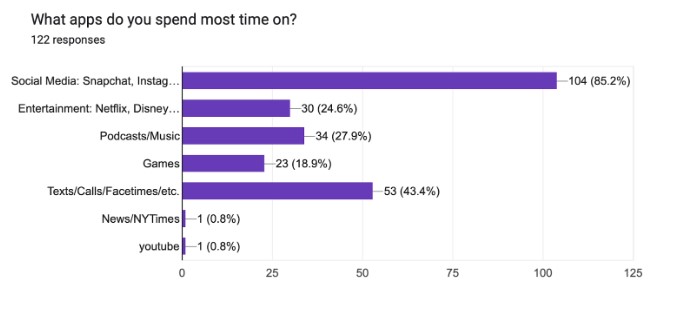
(Casey Teahan)
If you realize your screen time is too high then the only way to help the situation is to make a change for yourself. Instead of sneaking your phone out of your pocket, take an hour break and pay attention to the lesson. At lunch or between classes talk to other students and learn social skills. Even though technology has so many effective uses, people rely so heavily on them. It is important to remember that phones are not evil things trying to ruin our lives. They are extremely useful and there is a reason we do not live without them. But like everything else in the world, they are good in moderation. There was a time when people lived without phones, and they were able to perform everyday tasks. Phones make everything easier, but they can also destroy us. Phones are not ruining society, but they have altered the way teenagers live their life.





